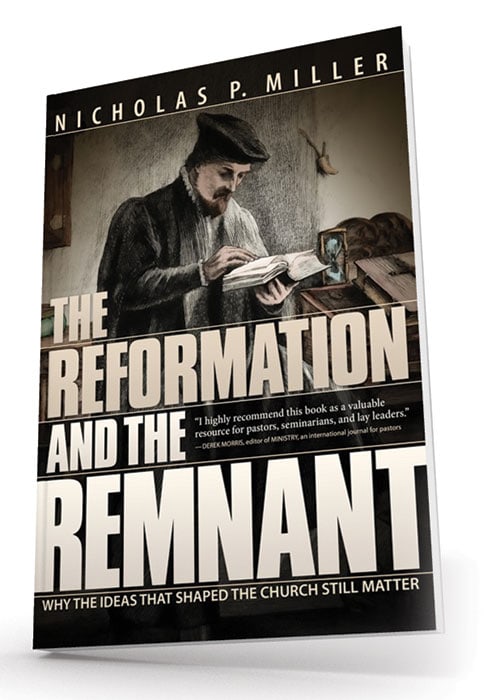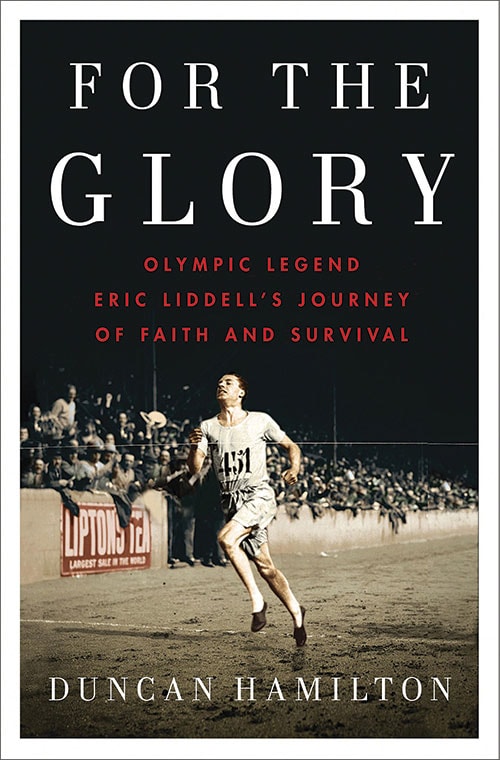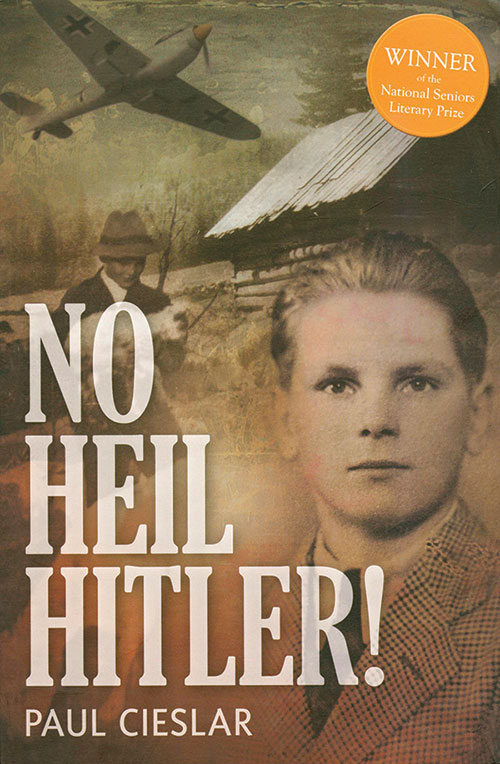
The Reformation and the Remnant: Why the Ideas That Shaped the Church Still Matter, Nicholas P. Miller, Pacific Press Publishing Association, 2016, 142 pages, US$15.99. Reviewed by Lael Caesar, associate editor, Adventist Review.
Nicholas Miller’s volume exposes the direct links between twenty-first-century Adventism and other Christian movements of the past 500 years. He shows Adventism’s direct connection to the Second Great Awakening of America’s late-eighteenth and early-nineteenth centuries, and beyond that to the sixteenth-century Protestant Reformation.
Miller’s principal accomplishment in this book may be his demonstration of how an informed perspective on Christianity’s history benefits today’s Adventist Bible students. The book will surely provoke deeper reflection among Adventists who are confident about the church’s understandings of biblical doctrine but uncertain about its theological practice.
It will challenge church members whose determination to discharge the gospel commission in the manner that God intends leaves them preoccupied about the gap between our theoretical positions and our actual involvement with the rhythms of our neighborhoods and the shaping of public policy.
Miller first reminds us of the debt Adventists owe to the Reformation principles of sola scriptura (by Scripture alone), prima scriptura (Scripture as primary authority), and tota scriptura (the authority of the entire Bible). He argues that to disregard the contributions of earlier Christian thinkers is to imply that today’s Christians are superior to those of earlier times. On the other hand, by giving their proper due to earlier expositors of Scripture who stood on the Reformation principles just mentioned, today’s Adventist Bible students are saved from reinventing the wheel and educated about how much we have in common with other Christians.
Miller observes that Adventists today seem much more reluctant to work with other Christian churches on public morality than our own pioneers did. He would like us to reengage as they did in the many areas that advance God’s cause without threatening our allegiance to the principle of separation between church and state.
If you are committed to preserving your prejudices, if you cannot stand a conscientious, charitable, and informed critique of those prejudices by an Adventist Christian brother, perhaps you should not read this book.

For the Glory: Eric Liddell’s Journey From Olympic Champion to Modern Martyr, Duncan Hamilton, Penguin Press, New York, 2016, 388 pages, US$28.00. Reviewed by Stephen Chavez.
For most of us, the name Eric Liddell is familiar because of its connection with the Oscar-winning film Chariots of Fire (1981). The movie revolves around Liddell’s efforts to compete in the 1924 Paris Olympics without compromising his faith by running on Sunday, a day he observed as a day of worship.
Liddell, whose specialty was the 100-meter dash, ended up winning gold in the 400-meter competition, held on a Thursday. The film ends with this biographical note: “Eric Liddell, missionary, died in occupied China at the end of World War II. All of Scotland mourned.”
For the Glory takes those two sentences and provides the prologue and epilogue to Liddell’s participation in the Olympics. The author, Duncan Hamilton, an award-winning British sports journalist, has put together a comprehensive, colorful, well-documented, and thoroughly entertaining look at a man who was at once a gifted athlete, a devout Christian missionary to China, and one universally admired by everyone who knew him.
For the Glory details Liddell’s accomplishments as an athlete, but it also chronicles his mission service in China before and during World War II. Describing his life as a prisoner, Duncan writes: “Every morning . . . , while the camp still slept, [Liddell] lit a peanut oil flame in the darkness and prayed for an hour. Every night, after studying the Bible, he prayed again. He did not discriminate. He prayed for everyone, even for his Japanese guards.”
The man portrayed in this book is multidimensional. Read For the Glory if you want to know why Eric Liddell was much more than an Olympic gold medalist.

No Heil Hitler! Paul Cieslar, Signs Publishing, Warburton, Victoria, Australia, 2015, 277 pages, US$14.99. Reviewed by Stephen Chavez, assistant editor, Adventist Review.
Paul Cieslar deserves our gratitude for being an eyewitness to one of the darkest periods in modern history. We also owe him our thanks for taking the time and effort to tell his story, a story lived by thousands, but recorded, unfortunately, by only a few.
No Heil Hitler! is a powerful account of Cieslar’s adventures when military forces occupied Poland during World War II. As a 10-year-old in 1939 when the war began in Poland, the author surely didn’t understand as well as his parents all the implications of the occupation. Nevertheless, he found himself drawn into the drama when he had to attend a school where teachers were as dedicated to indoctrination as they were to education.
The underlying theme of the book—trying as far as possible to refrain from using the greeting that identified one as a Hitler loyalist—is augmented by incidents when the author’s family risked their lives by following their consciences, even when that included harboring fugitives and offering them food. Cieslar’s family were loyal Adventists throughout the war. Part of their balancing act involved being upright citizens without compromising larger, heavenly principles.
As with any well-told story, No Heil Hitler! contains lots of drama, close calls, and incidents that defy human explanation. The book is also an honest portrayal of the fact that innocent people often lose their lives while trying to live conscientiously. War is an equal-opportunity destroyer.
Cieslar, now in his 80s, served as a pastor in Poland, then in England. He and his wife now live in Australia, where he is still active in ministry. No Heil Hitler! is an excellent account of a history we should never forget.